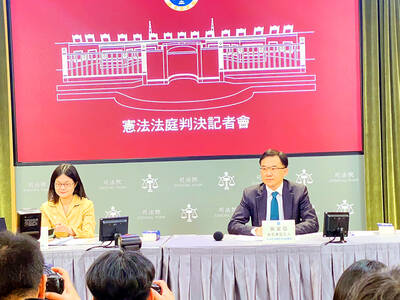PepsiCo Inc, the world's second-biggest soft-drink maker, will follow standards India plans to set, norms that may end the recurring debate over pesticide residues in its beverages and those of bigger rival Coca-Cola Co.
"We will abide by and fully comply with whatever standards the government sets," Indra Nooyi, the India-born chief executive officer of Purchase, New York-based PepsiCo, said in a speech at a seminar in New Delhi yesterday. "We and the Coca-Cola Co are working on a breakthrough technology that will detect very low levels of pesticide residues in soft drinks."
The controversy resurfaced this summer after an Indian pressure group said its tests showed 57 samples of 11 brands of sodas made by the two companies had pesticides residues. The government maintained the findings didn't conclusively prove drinks made by Coca-Cola and PepsiCo contain pollutants.
The companies also succeeded in overturning a sales ban on their sodas in the southern state of Kerala, a Communist-ruled province that was among the local administrations imposing varying curbs after the pressure group made public its findings.
While the authorities in other states imposed partial bans, the administration of Kerala, a tropical vacation destination along the Arabian Sea, was the only government to fully ban brands from both companies.
Atlanta-based Coca-Cola and PepsiCo disputed the testing methods and results, and said their drinks meet the EU standard of less than 1 part per billion for any individual pesticide. Coca-Cola depends on India for about 1.3 percent of its volume.
"I personally stand by each and every product we sell," Nooyi said yesterday. "Recently, three highly reputed laboratories declared our products are safe. Residues are not detectable."
PepsiCo has reduced water use in India by 50 percent and is focusing on low-fat products aimed at curbing obesity trends, Nooyi said.
The political debate surrounding the sporadic bans stoked concerns Indian laws may fail to protect overseas businesses, consequently hurting investment flows.

TRAGEDY STRIKES TAIPEI: The suspect died after falling off a building after he threw smoke grenades into Taipei Main Station and went on a killing spree in Zhongshan A 27-year-old suspect allegedly threw smoke grenades in Taipei Main Station and then proceeded to Zhongshan MRT Station in a random killing spree that resulted in the death of the suspect and two other civilians, and seven injured, including one in critical condition, as of press time last night. The suspect, identified as a man surnamed Chang Wen (張文), allegedly began the attack at Taipei Main Station, the Taipei Fire Department said, adding that it received a report at 5:24pm that smoke grenades had been thrown in the station. One man in his 50s was rushed to hospital after a cardiac arrest

PUBLIC SAFETY: The premier said that security would be tightened in transport hubs, while President Lai commended the public for their bravery The government is to deploy more police, including rapid response units, in crowded public areas to ensure a swift response to any threats, President William Lai (賴清德) said yesterday after a knife attack killed three people and injured 11 in Taipei the previous day. Lai made the remarks following a briefing by the National Police Agency on the progress of the investigation, saying that the attack underscored the importance of cooperation in public security between the central and local governments. The attack unfolded in the early evening on Friday around Taipei Main Station’s M7 exit and later near the Taipei MRT’s Zhongshan

ON ALERT: Taiwan’s partners would issue warnings if China attempted to use Interpol to target Taiwanese, and the global body has mechanisms to prevent it, an official said China has stationed two to four people specializing in Taiwan affairs at its embassies in several democratic countries to monitor and harass Taiwanese, actions that the host nations would not tolerate, National Security Bureau (NSB) Director-General Tsai Ming-yen (蔡明彥) said yesterday. Tsai made the comments at a meeting of the legislature’s Foreign Affairs and National Defense Committee, which asked him and Minister of National Defense Wellington Koo (顧立雄) to report on potential conflicts in the Taiwan Strait and military preparedness. Democratic Progressive Party (DPP) Legislator Michelle Lin (林楚茵) expressed concern that Beijing has posted personnel from China’s Taiwan Affairs Office to its

‘ILLEGAL RULING’: The KMT and the TPP slammed the Constitutional Court judgement, saying it contravened the law and was trying to clear the way for a ‘green dictatorship’ The Constitutional Court yesterday ruled that amendments to the Constitutional Court Procedure Act (憲法訴訟法) passed by the Legislative Yuan last year are unconstitutional, as they contravene due legislative process and separation of powers. The Legislative Yuan on Dec. 20 last year passed amendments stipulating that no fewer than 10 grand justices must take part in deliberations of the Constitutional Court, and at least nine grand justices must agree to declare a law unconstitutional. The Executive Yuan on Jan. 2 requested that lawmakers reconsider the bill, but the Legislative Yuan, under a combined majority of Chinese Nationalist Party (KMT) and Taiwan People’s Party